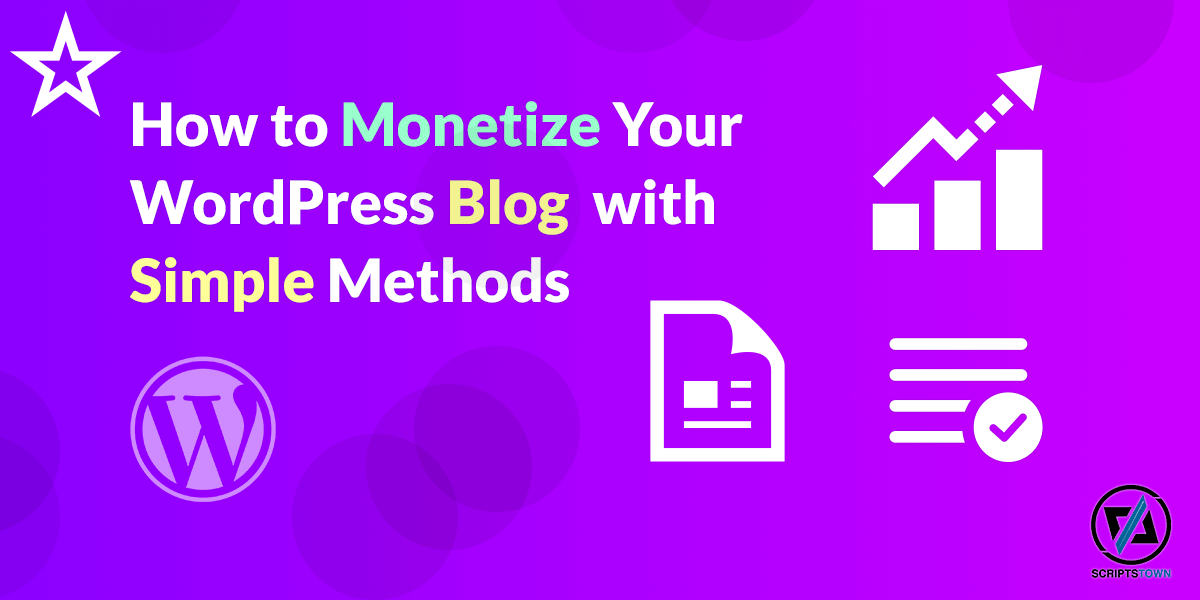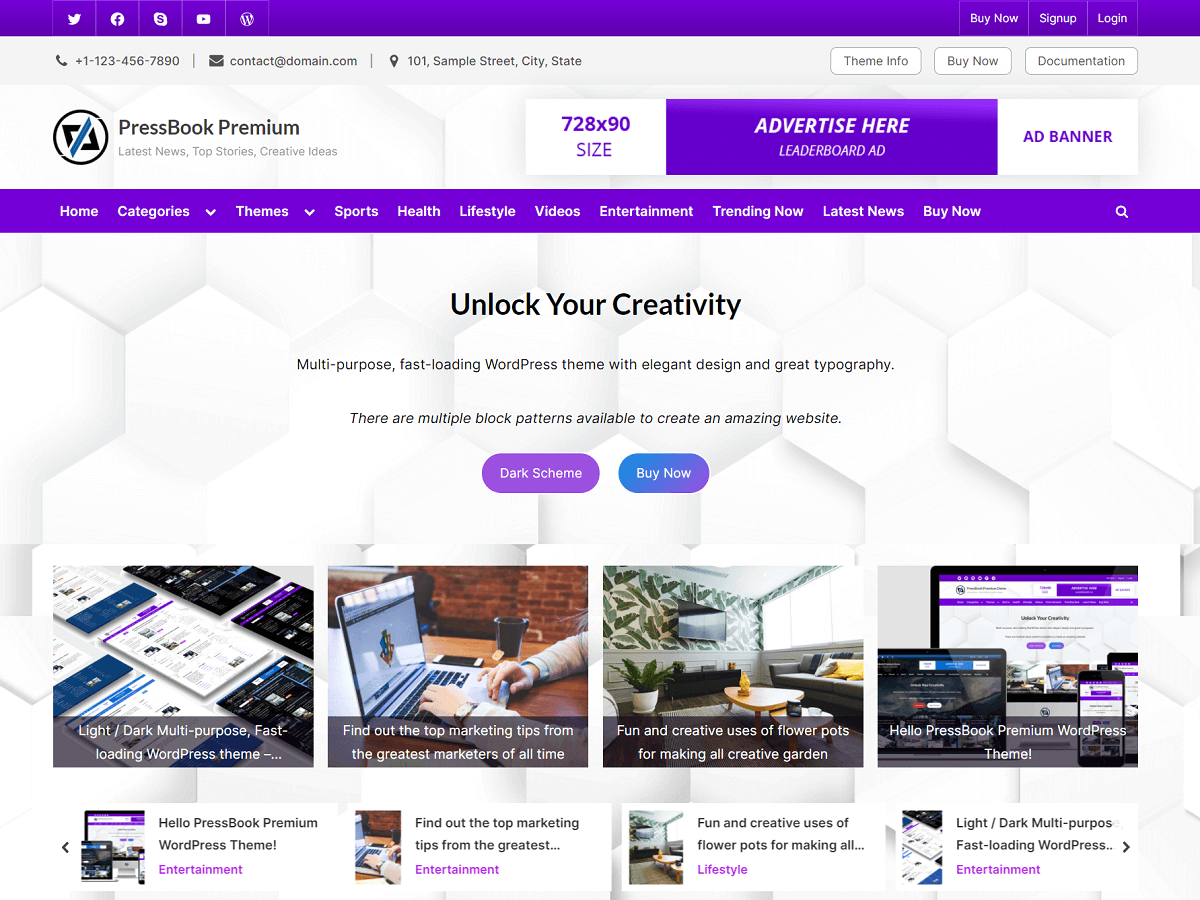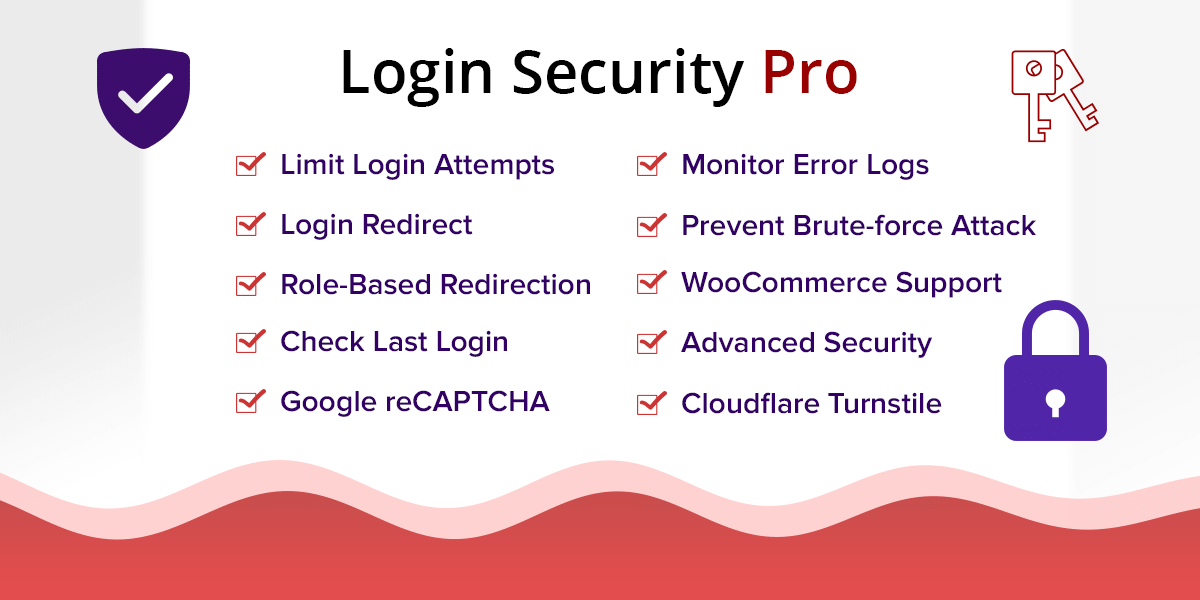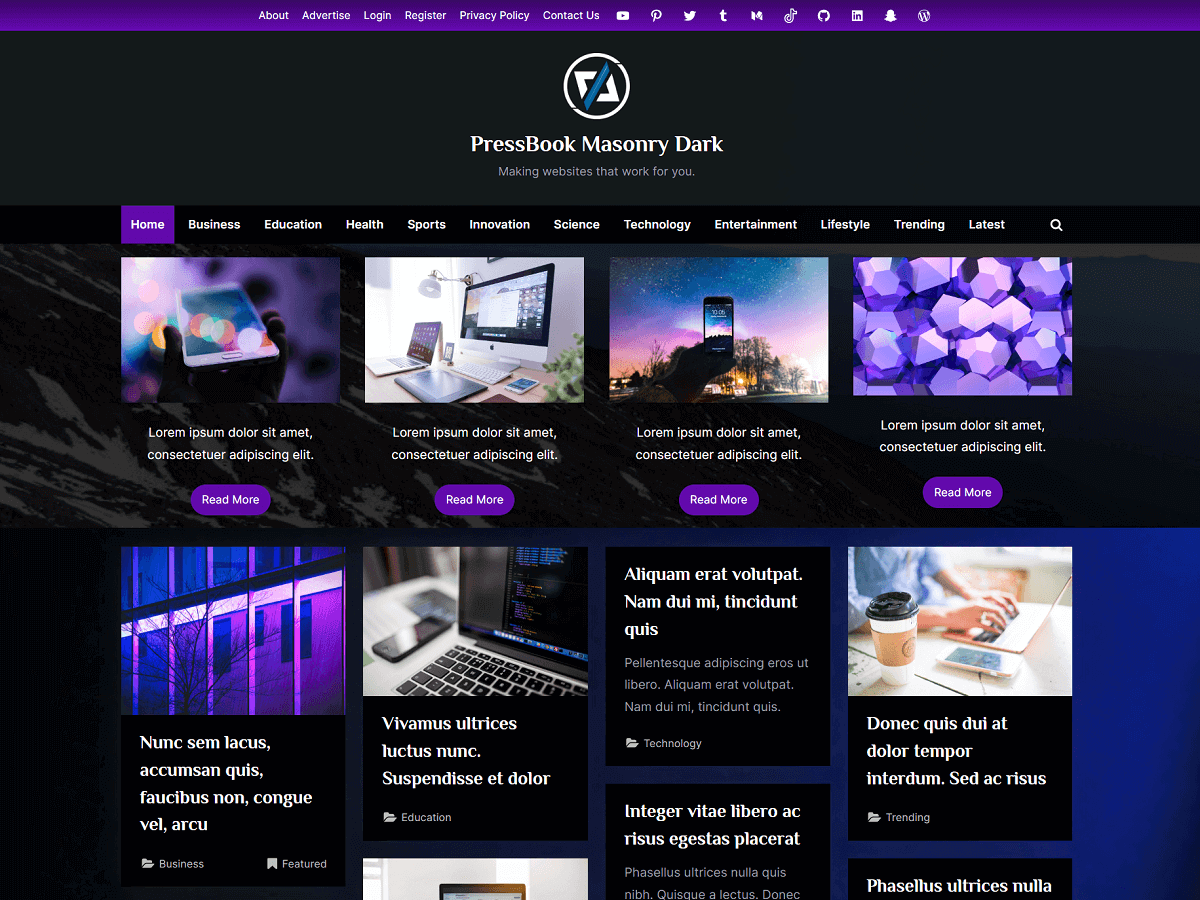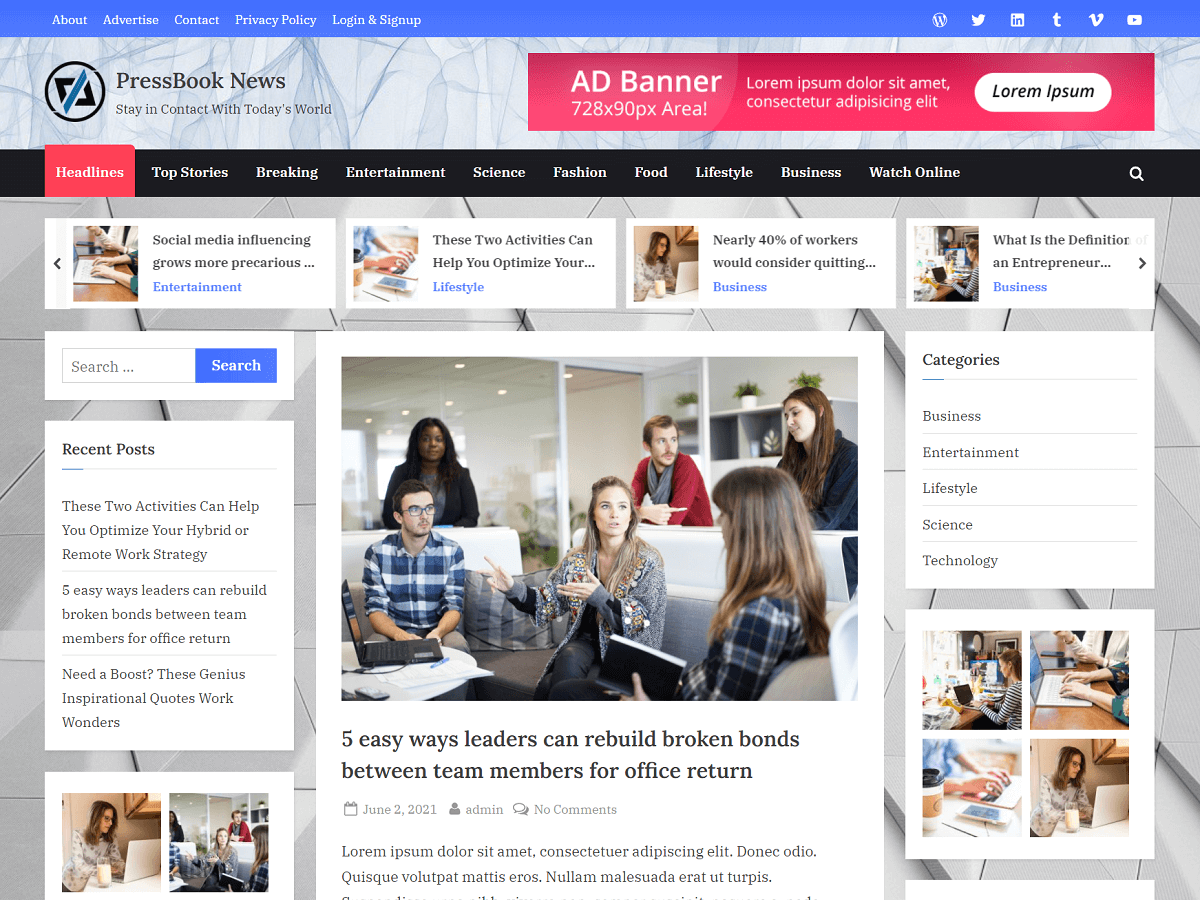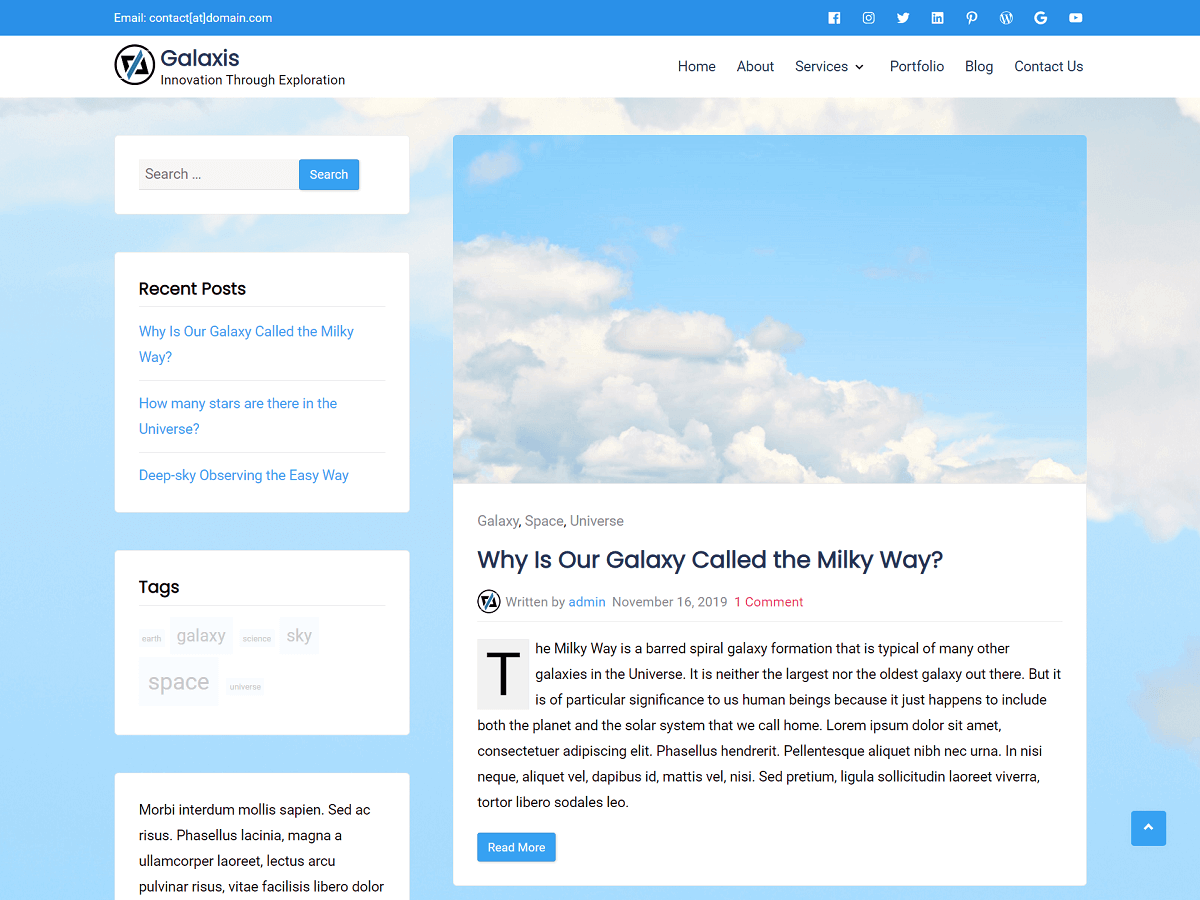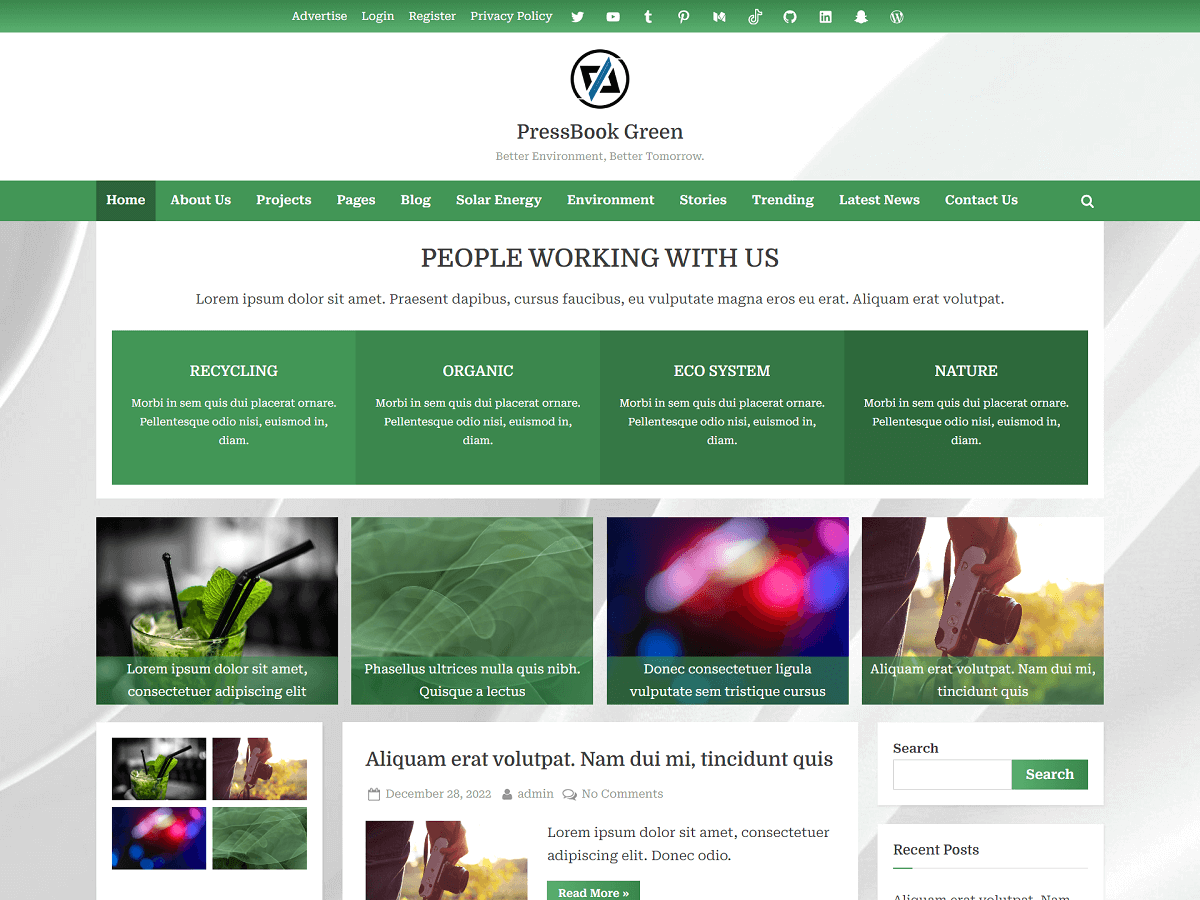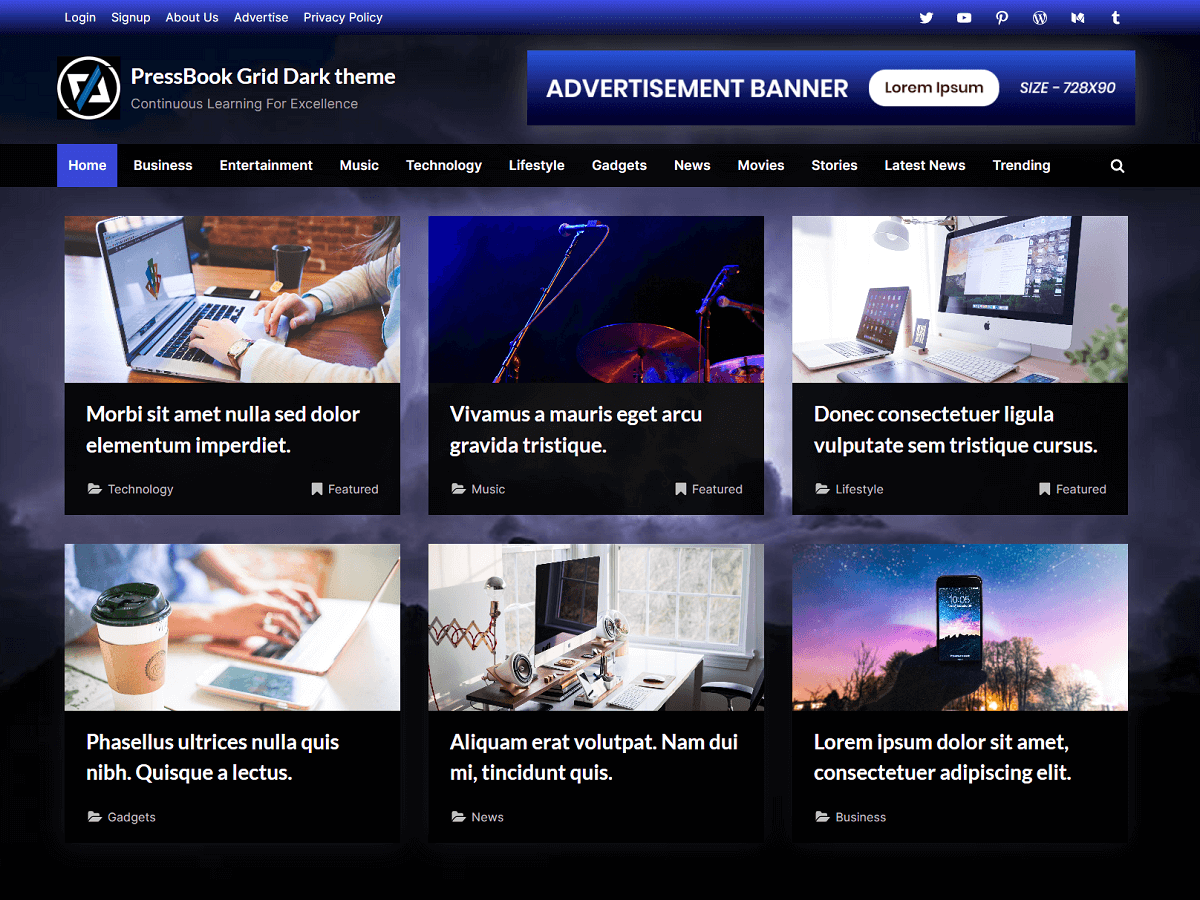Blogging is a popular way for people to share their thoughts, opinions, and experiences. Many bloggers also want to make money from their writing.
If you are using WordPress as your blogging platform, there are several simple and effective ways to monetize your blog. In this article, we explore simple yet effective methods to monetize your blog and make the most out of your blogging efforts.
Earning with Advertising on your WordPress Blog
Advertising is an effective way to earn money from your WordPress blog. Here are key points on earning with advertising on your WordPress blog:
- Optimize your blog: Ensure that your blog is optimized for search engines and has good page speed to increase your chances of getting higher ad revenue.
- Place ads strategically: Place ads in visible and accessible areas on your blog to ensure maximum exposure and clicks.
- Advertising network programs: AdSense is a program that automatically places ads on your blog and pays you a portion of the revenue earned from clicks. For example, if your blog is about technology, AdSense can place ads for tech products and services, earning you a portion of the revenue from clicks. There are more advertising network programs like PropellerAds, Infolinks, etc.
- Offer sponsored content: Partner with businesses to write about their products or services on your blog for a fee. For example, if your blog is about home decor, you can offer sponsored content to furniture and home accessory brands, writing about their products on your blog. Also, if your blog is about cooking, you can place ads for kitchen appliances or ingredients, and offer sponsored content for cooking classes.
Encouraging Donations on your WordPress Blog
Encouraging donations through platforms like PayPal or Patreon on your WordPress blog can provide an additional source of income. Also, it can help support the growth of your blog.
- Provide valuable content: Offer valuable as well as engaging content that your readers will want to support.
- Make it easy to donate: Add a donation button or link to your blog that makes it easy for readers to make a contribution. For example, a PayPal donation button on your blog allows readers to make a contribution with a simple click.
- Be transparent: Be clear about why you are seeking donations and how the funds will be used to support your blog.
- Offer perks: Offer perks for readers who make a contribution, such as exclusive content or a shout-out on your blog. For example, you can offer exclusive access to your blog’s e-book for readers who make a contribution of $10 or more.
- Ask for donations: Don’t be afraid to directly ask your readers for a contribution to support your blog. For example, you can add a request for a donation at the end of your blog posts, or in a separate post dedicated to asking for support.
- Show appreciation: Show appreciation for every contribution, no matter the amount, to encourage continued support.
Monetization-Friendly WordPress Theme
Choosing the right WordPress theme is crucial for monetizing your blog effectively. The right blogging theme can improve the user experience, increase engagement, and provide ample opportunities for showcasing ads, products, and services.
An effective WordPress theme for blogging must have the following qualities:
- User-Friendly Design: A user-friendly design that is easy to navigate can improve the overall user experience and increase engagement on your blog.
- Ad-Friendly Layout: An ad-friendly layout that prominently displays ads can help you maximize revenue from advertising.
- Responsiveness and Mobile Optimization: Responsiveness is essential for ensuring that your blog is accessible to users on all devices. This can improve the user experience and increase engagement, which can lead to more opportunities for monetization.
Monetizing with Affiliate Marketing
Affiliate Marketing is a simple and effective way to monetize your WordPress blog. Here are the key points to consider when implementing affiliate marketing:
- Choose relevant affiliate programs: Pick affiliate programs that match your blog’s niche. For example, if your blog is about travel, you can consider joining the affiliate programs of travel companies like Booking.com, Airbnb, or Expedia.
- Create valuable content: Add affiliate links to your content in a way that adds value to your readers. For example, if you write about a particular product, then you can include an affiliate link to that product within your post.
- Use eye-catching graphics: Use images and links that catch users’ attention to get more clicks on your affiliate links. For example, you can use buttons or banners that say “Shop now” or “Learn more.”
- Monitor performance: Use tracking tools and analytics to monitor the performance of your affiliate links. So, you can adjust your strategy as needed.
Sponsored Posts on your WordPress Blog
Sponsored posts on your WordPress blog provide an opportunity to earn income and collaborate with brands.
- Partner with brands: You can partner with brands that align with your blog’s niche and target audience to ensure the content of sponsored posts aligns with their needs. For example, if your blog is about beauty, partner with a beauty brand for a sponsored post.
- Keep standards high: Only accept sponsored posts that align with your blog’s values and maintain the quality of your content.
- Sponsored reviews: Collaborate with brands or companies to write honest reviews about their products or services in exchange for compensation.
- UTM parameters: Implement UTM parameters for your links to monitor the effectiveness of your sponsored posts and measure key metrics. They provide information such as source, medium, and content associated with a specific link.
- Disclosure and transparency: Maintaining transparency and disclosing sponsored posts to your readers is crucial for preserving trust in your audience. By being open about collaborations, you ensure transparency to build better connections with readers.
As an example, imagine you have a WordPress blog website about fashion. A clothing brand approaches you and offers to pay you for a sponsored review of their latest collection, where you showcase trendy outfits and share your honest opinion.
Selling and Promoting Digital Products or Courses
Selling digital products or courses is a great online business model. Key points to keep in mind while promoting digital products are:
- Understanding target audience: Identify who your target audience is and create products that cater to their needs. For example, creating a weight loss program in accordance with women’s weight loss supplements.
- Choosing the right platform: Choose a platform to sell your digital products that suit your needs, such as WooCommerce for WordPress.
- Selling online courses: Learning management system (LMS) plugins such as LearnPress, etc. allow you to sell courses in WordPress. When selling courses, you can use one-time or recurring payment options.
- Selling ebooks: Create additional valuable content for your WordPress blog. Convert it into an e-book format, and integrate an e-commerce plugin on your WordPress website. Then, you can promote and sell eBooks with more high value content to the audience.
- Artworks: Artists can monetize their WordPress blogs by selling the unique artworks they create and also show on the blogs. This way, they can turn their blog into a place where people can enjoy and buy their unique creations.
- Product packaging and pricing: Package your digital product in a way that offers value and price it competitively that aligns with market standards.
- Marketing and promotion: Use various marketing channels like email marketing, social media, and paid advertising to reach your target audience. For example, running Facebook Ads targeting photography enthusiasts.
- Offering great customer experience: Provide excellent customer support, fast delivery, and continuous improvement to your digital product. For example, offering live Q&A sessions for customers.
Membership Subscriptions with Exclusive Content
Membership subscriptions are a great way to monetize your WordPress blog by offering exclusive content or services to your dedicated audience. You can also integrate diverse membership programs and cater to different audience preferences.
With a subscription model, you can provide premium content, special access, personalized support, or special discounts to your loyal subscribers. This not only adds value for your audience but also creates a recurring revenue stream for your WordPress blog.
Here are a few key points to consider when implementing membership subscriptions:
- Exclusive content: Offer members access to exclusive articles, tutorials, videos, or resources that are not available to non-subscribers.
- Community building: Create a sense of community by providing a private forum or group where members can interact, share ideas, and get personalized advice.
- Special discounts: Offer exclusive discounts or early access to new services, events, or products to incentivize subscriptions.
- Sneak peeks: Give members exclusive sneak peeks of upcoming projects, products, or features. Allow them to be the first to experience and provide feedback. This can make them feel valued and involved in the development process.
- Premium support: Provide priority support to members, offering them direct access to you for assistance or guidance.
- Membership levels: Create different membership tiers with varying benefits and price points to cater to different audience segments.
For example, imagine you have a WordPress blog related to photography. You can offer a membership subscription where members gain access to a library of in-depth photography tutorials, a private online community where they can connect with fellow photographers, and personalized feedback on their work from you. Additionally, members can receive exclusive discounts on photography gear and early access to your upcoming photography workshops.
Consulting Services to Your WordPress Blog Readers
Offering consulting services to your WordPress blog readers can be a valuable addition to your monetization strategy. Consulting services involve sharing your specialized knowledge and insights to help your audience solve specific challenges or reach their goals.
Here are some key points to consider:
- Expertise and knowledge: Share your expertise and industry insights to help your readers navigate the complexities and guide them toward success.
- One-on-one sessions: With one-on-one sessions or coaching services, you can work closely with your readers to address their specific concerns and challenges, offering focused attention and actionable recommendations.
- Freelancing services: You can showcase your skills through engaging content on your WordPress blog site and offer freelancing services. Also, you can create dedicated pages for your services and a portfolio to help readers quickly hire you.
- Value-added resources: Extend your consulting services by providing additional materials such as detailed reports, checklists, exclusive access to webinars or workshops, or bespoke toolkits.
- Continuous support: Offer long-term support by providing ongoing assistance and periodic follow-ups to ensure sustained progress.
Suppose your blog is about gardening, and you offer consulting. A reader wants better yields from their garden. In personalized sessions, you assess their space, plants, and soil conditions. Your custom plan, with soil amendments, and care routines, leads to a thriving garden. Your expertise not only helps them succeed but also earns you through consulting.
Maximizing Revenue with Email Marketing
Email marketing is crucial for monetizing a WordPress blog. Key points to maximize revenue with email marketing are:
- Building email list: Use a plugin to capture the email addresses of your WordPress blog visitors through opt-ins, landing pages, and lead magnets. When collecting email addresses, ensure their accuracy by using an email verification API. This enhances your marketing efforts by maintaining a clean and reliable email list. As an example of a lead magnet, you can offer a valuable free e-book to visitors who opt-in to your email list.
- Segmentation: Divide your email list into smaller groups based on interests, behaviors, and demographics. For example, creating separate lists for customers who have made a purchase and those who haven’t.
- Personalization: Personalize emails with the recipient’s name, location, and previous interactions with your WordPress blog. For example, sending an email with the subject line “Hello [Name], Upgrade Your Cooking Skills Today”.
- Re-engagement campaigns: Keep subscribers engaged by sending re-engagement campaigns to those who haven’t opened your emails in a while. For example, sending a special offer to subscribers who haven’t opened your emails in 30 days.
Scalability and Security with Monetization Expansion
As your online business grows through monetization, it is important to pay attention to the performance, security, and scalability of your WordPress website. This is also to ensure the sustainability of your monetization efforts. When your WordPress website is fast and reliable, it indirectly contributes to your monetization revenue.
Multiple layers of security are involved in protecting against vulnerabilities. Also, there are multiple ways to improve WordPress website scalability and performance.
Here are the measures you should take:
- Regular Updates: Keep the WordPress core, themes, and plugins updated to patch vulnerabilities and performance issues.
- Caching Plugins: Improve website performance by making use of any caching plugins for quicker loading times.
- Minification Plugins: Reduce the number of resources that your website loads by using minification plugins. They also help to reduce the size of resources such as CSS, JS, etc.
- Compress Images: Utilize image optimization plugins such as Smush to reduce the size of images. You can also utilize CDN services. It’s a good practice to compress images before uploading them to your WordPress website.
- Object Caching: To reduce the number of database queries, you can make use of an object cache plugin such as Redis or Memcached.
- Server-Level Security: Implement firewall rulesets at the server level to improve overall security. You can also throttle the number of requests per IP to protect your WordPress website against DDoS attacks.
- Security Plugins: Utilize necessary security WordPress plugins to protect forms and a firewall plugin to secure your website against any potential threats.
- Network Security: Integrate effective network security measures to safeguard your computer network. This could include network monitoring to watch and evaluate the health, scalability, and performance of your computer network. This is important as your organization grows and you build an office with a team to work on your website.
Conclusion
Monetizing your WordPress blog requires a combination of various methods and techniques. From earning through advertising, accepting donations, choosing a monetization-friendly theme, promoting affiliate products, accepting sponsored posts, and selling digital products, to maximizing revenue with email marketing, there are several options available.
Bloggers can easily turn their passion into a successful online business and maximize their earning potential with simple methods. It’s important to experiment, track results, and make adjustments to find the most effective monetization strategy for your WordPress blog.
Furthermore, there are several indirect factors which include performance, security, reliability, and scalability, that play a significant role in contributing to your revenue and sustaining the monetization of your WordPress blog. Once you monetize your WordPress blog and reach a reasonable milestone, it’s essential to address these aspects soon to ensure long-term success and profitability.

